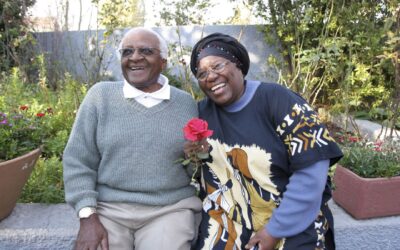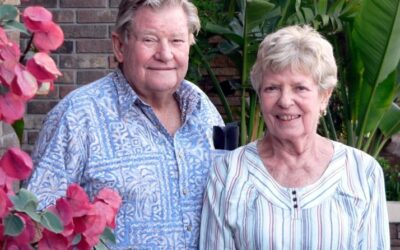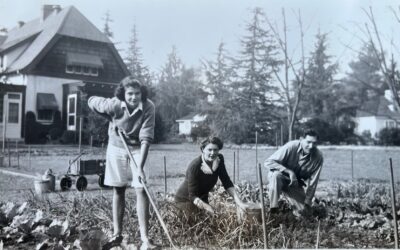On Monday night I attended Living to Age 90 and Beyond, a public talk by University of California Irvine Health geriatric neurologist Dr. Claudia Kawas, part of the Medicine in Our Backyard series of lectures offered in collaboration with UCI and the Newport Beach Public Library.
Since 2003 Dr. Kawas has lead the pioneering 90+ Study, which examines the lives of some 1,600 participants, all in their 90s and older, trying to determine which factors allow some to live to longer; and which factors allow some to remain dementia-free. It is the longest running study of it’s kind, and has been featured on 60 Minutes twice.
Dr. Kawas introduced her talk with some stories about Jean Louise Calmet, a Frenchwoman born in 1875 who lived to be 122 – Jean Louise holds the world record for the longest living person. Remarkably, she never developed dementia, and remained in strong physical and mental health until her death. She apparently took up fencing lessons at 85 and rode her bicycle until 100!
Why do some people live into their 90s and beyond, Dr. Kawas and her team of researchers ask? And how do some people, like Jeanne Louise Calment, live so long dementia-free?

Dr. Claudia Kawas’s 90+ Study is the longest running of it’s kind, studying the lives of people who live to be 90 and older.
In their study Dr. Kawas and her team look at what the participants eat and drink, their various daily activities, medical history any medications, etc. All of the patients in the study are also given a variety of cognitive and physical tests – to see how well they continue to read and recall, how well they can walk, etc. (Dr. Kawas said individuals who walked faster, had stronger hand-grips, and could get up faster out of a chair, were less likely to develop dementia).
Some of their major findings of the 90+ Study are (from the UCI Mind webpage):
– People who drank moderate amounts of alcohol or coffee lived longer than those who abstained.
– People who were overweight in their 70s lived longer than normal or underweight people did.
– Over 40% of people aged 90 and older suffer from dementia while almost 80% are disabled. Both are more common in women than men.
– About half of people with dementia over age 90 do not have sufficient neuropathology in their brain to explain their cognitive loss.
– People aged 90 and older with an APOE2 gene are less likely to have clinical Alzheimer’s dementia, but are much more likely to have Alzheimer’s neuropathology in their brains.
– See more at: http://www.mind.uci.edu/research/90plus-study/#sthash.Nag8V7Ov.dpuf
I was also happy to learn that as little as 15 minutes of exercise a day extended people’s lives.
And interestingly, hypertension or high blood pressure, was found to be protective in patients in their 80s and 90s, somehow preventing them from developing dementia, Dr. Kawas said. But only for people who developed high blood pressure in their 80s and 90s – not for anyone who developed high blood pressure at a younger age.
And while Dr. Kawas did say that the more we do with our brains, the longer we live, she really stressed the importance of social engagement.
In response to a question about brain exercise programs, such as Luminosity, helping to prevent Alzheimer’s, she said that while it is important to exercise our brains, there is no evidence that brain exercise programs actually prevent Alzheimer’s.
She also said, she felt coming down to the library that night to attend the lecture, was vastly more beneficial for the health of everyone sitting in the room, than if we had stayed at home and done a crossword puzzle.
Her thoughts about the importance of social engagement really struck a chord with me. We see this all the time with our clients – who often are widowed, living alone, struggling with bodies that have slowed down, etc. It is so easy to become isolated and depressed, seeking comfort in familiar TV programs and lonely, un-stimulating routines. But a thoughtful caregiver can help shift all of that, providing not only support and protection for an elderly loved one, but also companionship, which oftentimes appears to provide the greatest psychological benefit.
We see all the time the companionship caregivers offer lifting elderly clients out of depression.
In a busy, global world where it can be so difficult for families to provide the kind of psychological support that aging parents and relatives need, I’m glad that companies like ours are able to provide that friendship and care.












0 Comments